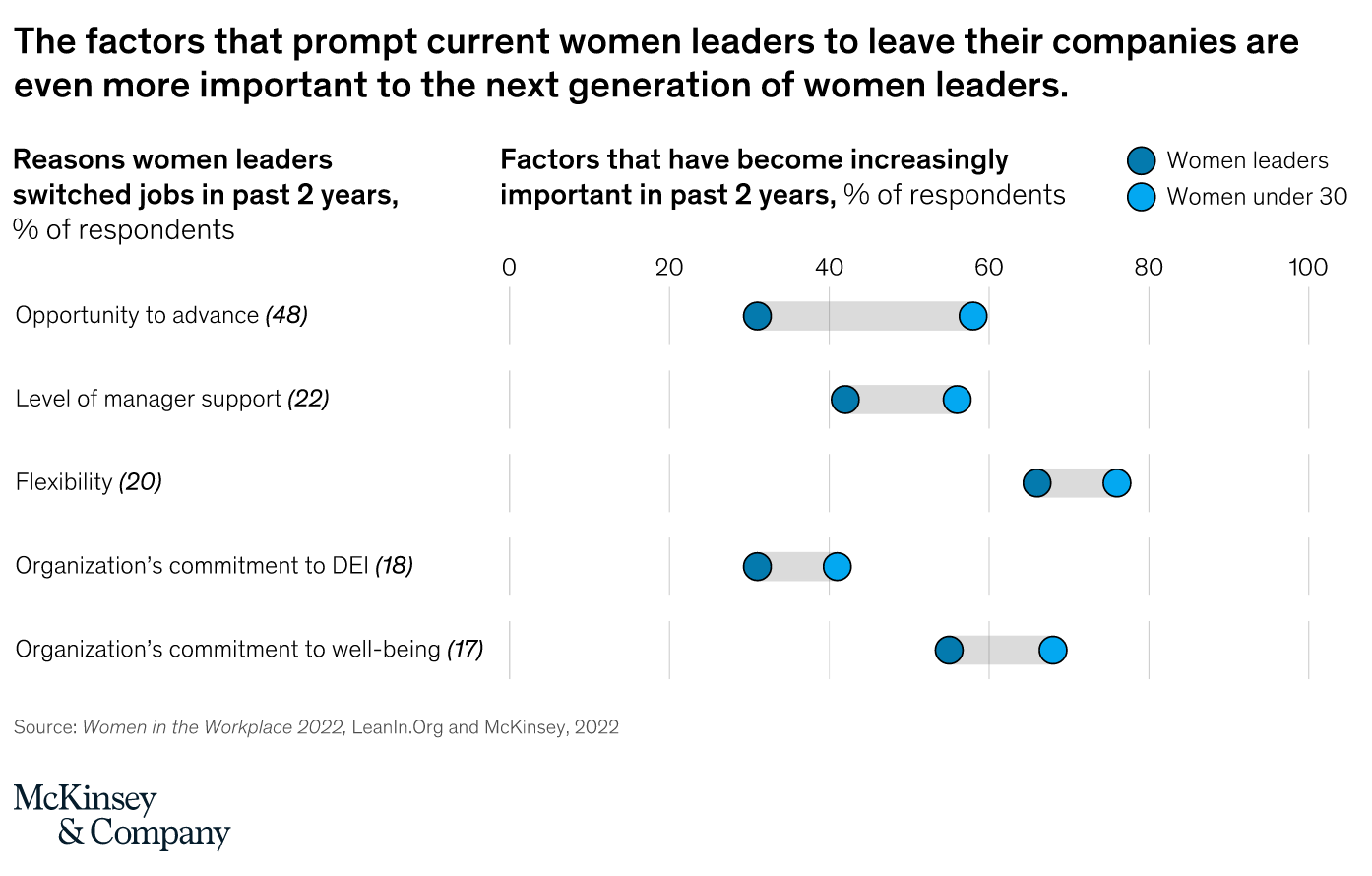A Closer Look at McKinsey & Company's Annual Workplace Inequality Report
Another year, another study on inequality. This time, we’re taking a look at McKinsey & Company’s Annual Women in the Workplace 2022 Report to assess the climate for women in corporate America.
McKinsey included data from:
333 organizations (employing 12 million+ people)
40,000+ employees individually surveyed
Interviews with women, including LGBTQ+ women, women of color, and women with disabilities
An Overview
Women are taking less shit from companies than ever before, and are leaving when they have a problem with their job. They want to work for companies that recognize their work, value DEI, offer remote work, and don’t hinder their career growth. However it’s no surprise that women are still struggling in the workplace, especially women that are not able-bodied, cisgendered, and white.
There’s already huge inequality for female leaders in corporate America, and now women are leaving their companies, switching jobs, and asking more from their workplaces at unseen rates. According to the report, these migrations can have massive impacts, as women are already less represented in leadership.
You want proof?
1 in 4 C-suite leaders is a woman, and only 1 in 20 is a woman of color.
Only 87 women, and 82 women of color are promoted for every 100 men.
For every woman at the director level that gets promoted, 2 female directors leave.
Why, why, WHY?
We already know that women make up lower leadership numbers because of the “broken rung” problem: women don’t get as many promotions at the first step of their careers as men, and then struggle to keep up for the rest of their careers.
In addition to not getting promoted and difficulty advancing at companies, women also are leaving jobs because of microaggressions, resistance when trying to make the workplace more equitable, lack of DEI policies, and workplaces not emphasizing women’s well-being.
According to the report, a top reason women switch jobs is for remote working options. Give the people what they want, already! Only 1 in 10 women are interested in working mostly in-office. Remote work is crucial for women with disabilities and women who work remotely receive fewer microaggressions.
A deeper dive into the problems that cause women to leave companies:
Microaggressions
They are far more likely than men in leadership to have colleagues imply that they aren’t qualified for their jobs
Women leaders are twice as likely as men leaders to be mistaken for someone more junior
Women leaders are more likely to report that personal characteristics (their gender or being a parent) have played a role in them being denied or passed over for a raise, promotion, or chance to get ahead.
Women work more, and yet receive less recognition
40% of women say their DEI work at companies isn’t recognized, yet DEI increases employee satisfaction and retention
Bad workplace culture
Women are 1.5x more likely to leave their positions because of a better DEI company
A visual
Wait, it gets worse…
Women of color, LGBTQ+ women, and women with disabilities face even more disadvantages in their workplaces
Black women and Latinas are less likely to receive career support from their managers
Black and Asian women less likely to have senior management praise their work, and report lower occurrences of senior management trying to help them get a raise or promotion
Both women with disabilities and LGBTQ+ women report more microaggressions, especially ones that “other” and demean them. According to the study, “compared with women overall, they’re more likely to have colleagues comment on their appearance or tell them that they “look mad” or “should smile more.””
People especially don’t trust women with disabilities to do their jobs, and they are undermined more, too. Women with disabilities have much higher occurrences of getting second-guessed and questioned about their work (even when they are experts), and report a higher number of others taking credit for their ideas.
What have we learned
It still sucks to be a woman in the workplace, but at least there are more options and awareness today around the inequities. Women are leaving positions that do not spark joy for better opportunities. Make no mistake, though, women need to keep demanding more from our workplaces, bosses, and colleagues if we hope to make a dent in the 300 years it’s currently estimated to achieve full gender equality.
All data, graphs, numbers, and concepts are taken directly from the McKinsey & Company’s Women in the Workplace 2022 Report, which can be found here.


